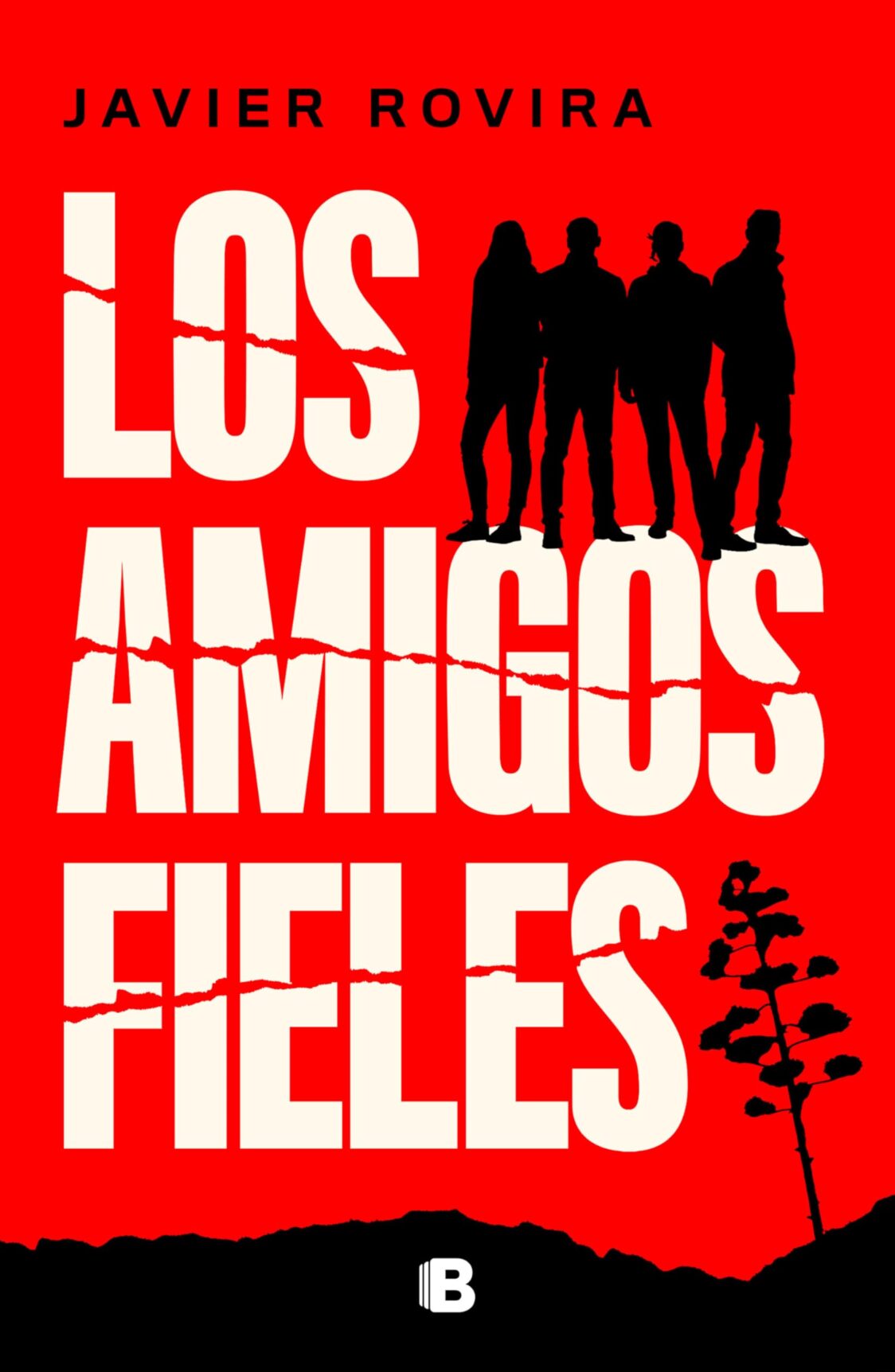Five friends who were once inseparable in their youth reunite many years later during a holiday. Old passions resurface, complicating their current relationships, but what truly shakes them are the long-buried secrets that begin to emerge, triggering a whirlwind of unexpected events with a thriller edge that will leave no one untouched. A thriller with strong dramatic and melodramatic undertones that hooks the reader from the very first page.
In the 1980s, five inseparable friends—Lucía, Fer, Cata, Martín, and Juanfra—grew up together in a working-class neighborhood in Madrid, united by music and dreams of freedom. Lucía, talented and emotionally fragile, was the band’s lead singer. Fer, the kindest of the group, secretly fell in love with her, and they eventually married. Cata, ambitious and manipulative, always sought to control the group. Martín, seductive and cynical, became Cata’s partner and most loyal ally. And Juanfra, Lucía’s great love, died tragically one night on the coast—a night about which they all share a pact of silence.
In 2012, the two couples that emerged from that group of friends meet again during a holiday in Cabo de Gata. They’re joined by their children: Dani, son of Cata and Martín, and Ana, Lucía and Fer’s adopted daughter. Dani’s friend Koldo also comes along, secretly involved in an affair with Cata.
During the trip, Dani disappears. The adults’ reactions reveal that something more is at stake: Cata avoids calling the police and tries to handle things quietly. Fer and Koldo launch a desperate search, taking them through roadside clubs, illegal settlements, and hidden brothels.
It soon becomes clear Dani has been kidnapped. All signs point to this being a warning aimed at Cata and Martín, who years before had built an illegal human trafficking network disguised as a domestic service agency. Now, deeply in debt, they find themselves exposed. Dani is being held with twelve trafficked women—victims of the same network—and is repeatedly abused by his captors.
As the search intensifies, the friends’ buried past resurfaces, and tensions explode. Lucía confesses to Fer that she never loved him, and it’s revealed that Fer is Dani’s biological father.
However, Dani’s kidnapping is not simply payback for past crimes. It’s a much more personal revenge: orchestrated by Salma, the family’s housekeeper, in retaliation for the death of her daughter—one of the victims of the system Cata helped build. Salma involved her son Zaid as an insider among the young people and waited for the perfect moment to strike.
With Zaid’s help, Salma also secured Koldo’s silence. Though not directly involved, Koldo agreed to look the other way in exchange for maintaining his privileged position under Cata’s wing. His distant and evasive behavior after the kidnapping raises Fer’s suspicions. The truth finally comes out when a waitress, who had spoken to Dani shortly before he vanished, calls Fer and tells him Dani felt watched and didn’t fully trust Koldo.
Driven by anguish and rage, Fer confronts Koldo, forcing him to confess and lead him to where Dani is being held: an abandoned barracks in the Almería desert. On the way there, tensions boil over. Cornered, Koldo pushes Fer off a cliff. Both fall. Gravely injured, Koldo manages to send a message to Cata, begging for help, remorseful. Fer, however, doesn’t survive. Dani is rescued.
Tired of years of silence, misplaced loyalties, and shared guilt, Lucía finally decides to end it all and reports everything. Thanks to her, Cata and Martín are tried and convicted. Martín, unable to bear prison or the collapse of his world, dies of an overdose. Cata serves her sentence until 2024, when she regains her freedom and, in a symbolic twist, crosses paths with Lucía again at the premiere of a musical. Despite everything—time, betrayal, and tragedy—the echo of that old bond of friendship and guilt still lingers beneath the surface.
RELEVANT INFORMATION: Javier Rovira (Almería, 1967) is a pianist and conservatory professor in Madrid, as well as holding a degree in Hispanic Philology from UNED. As a cultural manager, he is the founder and artistic director of the Festival Clásicos en el Parque, held in Rodalquilar (Cabo de Gata-Níjar Natural Park). For years, he has balanced his musical and teaching activities with writing. In 2012, he was a finalist at the Festival du Premier Roman de Chambéry.
His third novel, The Loyal Friends, is built on an ambitious and solid narrative structure: three intertwined timelines—the present in 2012, the days leading up to the kidnapping, and flashbacks to the 1980s—gradually reveal the hidden layers of a story marked by betrayal, the desire for redemption, and scars from the past. The time jumps aren’t just a narrative device; they’re key to building tension and revealing information. What happened in the 80s gives meaning to the events of 2012. This generational dialogue is one of the novel’s most powerful and adaptable elements.
Far from being a conventional crime novel, The Loyal Friends works as both an emotional and social thriller. The mystery (a kidnapping) is the starting point to explore deeper themes: friendship eroded by time, power structures replicated in intimate spaces, and structural violence affecting women, bodies, and relationships. It’s a thriller with strong dramatic elements, where plot twists are as crucial as the characters’ relationships—much in the vein of Big Little Lies.
One of the novel’s greatest strengths is how it develops its characters over time. The idealistic young people who once formed a band during Madrid’s La Movida become, thirty years later, broken, opaque, and contradictory adults.
The novel has enormous potential for an audiovisual adaptation, especially as a miniseries. Its clearly defined time jumps, thriller tone, and two-generations cast make it ideal for the screen. While its setting could be adapted to other locations, visually it offers striking backdrops: Cabo de Gata in high summer, 1980s Madrid during La Movida, punk aesthetics, and emotionally charged enclosed spaces. Lastly, though the story contains very dark, raw, and graphic moments, these can be omitted or adjusted depending on the intended audience for the adaptation.
AUDIOVISUAL POTENTIAL: TV Series, Miniseries, Feature Film, TV Movie.
AVAILABLE LANGUAGES: Spanish.

Adquirir los derechos
Para ponerte en contacto con nosotros completa el siguiente formulario y te responderemos en breve.
Error: Contact form not found.

